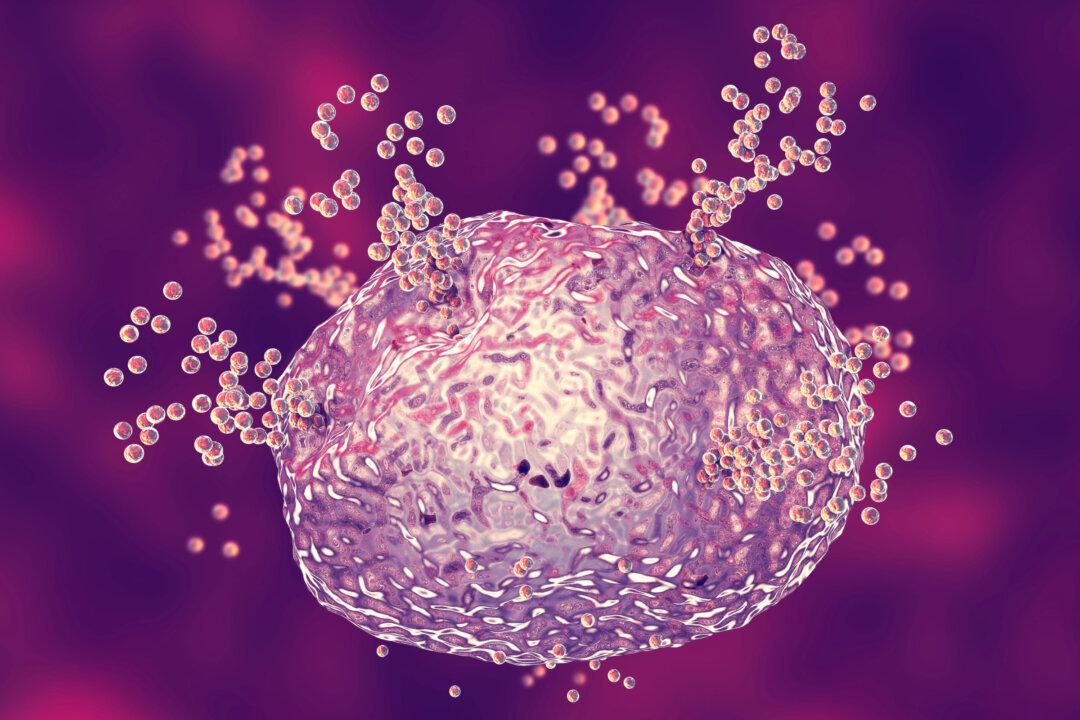The Ohio train crash on Feb. 3 highlights an essential fact of modern life that we all need to be prepared for: Our world runs, in large part, on toxic chemicals that we may inevitably be exposed to, either through the intentional use of everyday products or accidental exposures such as the derailed train that was carrying a variety of chemical products to Conway, Pennsylvania, from Madison, Illinois.
People living in the area surrounding East Palestine, Ohio, where about 50 cars derailed, are now contending with hazardous materials including vinyl chloride, butyl acrylate, ethylene glycol monobutyl ether, ethylhexyl acrylate, and isobutylene. At this point, it’s important that three things happen: that the chemicals are cleaned up, that long-term monitoring ensures the health effects linked to the spill are recognized and treated, and that those now exposed do everything they can to help their body contend with the chemical soup that has crashed into their local environment.
The chemicals that leaked are used to make PVC, rubber, paint, and other chemical-based products. Millions of gallons of hazardous chemicals were spilled as a result of this crash. Reports of chemical residues are being found hundreds of miles from the incident. People are finding dead pets, chickens, and fish in local waterways. Some have experienced symptoms of acute chemical exposure.
The Ohio Emergency Management Agency created a controlled explosion by releasing and burning the chemicals in an attempt to control the hazardous materials. Exposure to these gases can produce damaging reactive oxygen species, particularly hydroxyl radicals that wreak havoc on the body and impair mitochondrial function.
From a health perspective, even people living far beyond Ohio should be concerned about this incident and should support their bodies accordingly. It’s difficult to know the various toxic compounds that were released into the air, water, and soil in these areas and how far these residues will carry by wind and water.
Signs of Acute Chemical Exposure
- Tearing eyes
- Burning of the eyes, nose, throat, chest, and/or skin
- Headache
- Sweating
- Blurred vision
- Stomach aches
- Vomiting
- Diarrhea
- Difficulty breathing
- Coughing
- Wheezing
- Feeling faint or weak
- Inebriation
Antioxidants
Supplementing with antioxidants is important for helping to scavenge damaging free radicals. Glutathione is known as the body’s master antioxidant and is naturally produced within the body. Supplementing with a liposomal form is generally best absorbed.Support the Liver
The liver is one of the primary detoxification organs, and certain supplements can help it do its job. Calcium d-glucarate helps facilitate phase two detoxification in the liver called glucuronidation. Milk thistle can reduce oxidative stress and free radical damage in the liver. As a bonus, these supplements also help the liver detox estrogens appropriately and foster healthy cholesterol levels.Open Pathways of Elimination
In addition to the liver, making sure the body’s other pathways of elimination, such as the colon, kidneys, skin, lungs, lymphatic system, and glymphatic system are functioning well helps safely rid the body of toxins.- Hydrating with clean water and mineral-rich beverages to flush the kidneys
- Breathing through the nose with the diaphragm maximizes the oxygen delivered to the body
- Exposing yourself to the morning sun as these drainage pathways are connected with your circadian rhythm
- Consuming a clean, mineral-rich diet with plenty of fiber
- Ensuring at least one to three daily bowel movements
- Using coffee enemas to upregulate glutathione production and cleanse the liver and bile ducts
- Encouraging lymph flow through the body through dry skin brushing, lymphatic massage, rebounding, and exercise
- Castor oil packs over the liver, intestines, and/or colon
- Managing stress
Binding Agents
Taking systemic binding agents such as humic and fulvic acids, micronized zeolite clinoptilolite, bentonite clay, and charcoal are effective in detoxifying hazardous materials such as vinyl chloride, dioxins, phosgene gas, benzenes, phthalates, plastics, and so forth. The substances can bind to toxic compounds and help the body expel them.Support Your Barriers
Barrier integrity is crucial for safeguarding the body from toxins. It’s important to support the gut, brain, and lung barriers when exposed to toxins.- Gut: l-glutamine, deglycyrrhizinated Licorice, aloe, marshmallow root, slippery elm, curcumin, prebiotics, and probiotics all strengthen the integrity of the intestinal barrier.
- Brain: Having a blood-brain barrier dysfunction, or “leaky brain,” is associated with intestinal hyperpermeability or “leaky gut,” so it’s wise to bolster both. Resveratrol, curcumin, omega 3 fatty acids, B vitamins, vitamin D, magnesium, and sulforaphane that are found in cruciferous vegetables can aid blood-brain barrier integrity.
- Lung: Similar to a leaky gut and leaky brain, the delicate lining of the lungs can also become permeable. This happens when microscopic holes in the lungs allow inhaled particles to penetrate the lung tissue itself, making their way into the body cavity and causing an immune response. Nebulizing proper forms of glutathione along with taking immune-modulating compounds such as curcumin, resveratrol, omega-3 fatty acids, and maintaining proper vitamin D levels are important for adequate support.





